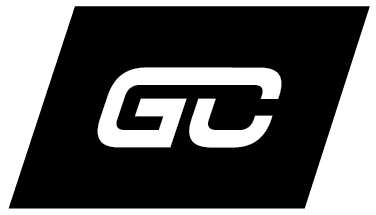NO TELETHONS FOR PRO ATHLETES
| BUT YOU SHOULD CARE ABOUT PRO ATHLETE TRANSITION |
No one is ever going to hold a telethon or launch a kickstarter campaign to support a retired [or active] multi-millionaire athlete who isn’t quite sure what his [or her] next step is after their sport career concludes.
The common refrain is that Jane Public can’t be blamed for being incredulous that a retired athlete with millions in the bank is struggling to find something to do, to find that new passion outside of sport. Perhaps it is true. If it is, the fault lies in the public’s misconception about professional athletics. Not all athletes become multi-millionaires. Being a professional athlete isn’t something that happens to you. It is a job. A hard job. A job that started, for some athletes, in early adolescence and took years and years of sacrifice and training, just to get a shot.
“YOU BECOME IRRELEVANT REALLY QUICKLY. BUT I NEVER DEFINED MYSELF SOLELY THROUGH TENNIS. MY SENSE OF SELF WORTH DID NOT DEPEND ON WINNING MATCHES.”
Martina Navratilova on retirement and transition.
The average career of a professional athlete, depending on the sport, is 3 to 5 years. Assume an athlete’s career starts at age 8 and the skill development phase extends until the age of 22 (that’s 14 long years) when a first contract gets signed. And let’s say an athlete has an average career. That player will be out of the game between the ages of 25 to 27. In the major sports, a players first contract is typically capped so you really don’t get paid the ‘real money’ until the second contract. That second contract for most never happens.
Athletes put 20 years (and a childhood) into a career that once complete, has no clear analog to another career. They may have made some money, but not enough to coast for 55 years.
The solution for athletes is simple:
- Explore now. Get excited about something while you have the leverage of the jersey on your back. This applies not only to pro athletes but those athletes at the collegiate level. Identify the opportunities that interest you and investigate them aggressively now. Today.
The solution for organizations is simple:
- Help your athletes explore. The idea that this kind of exploration is a performance inhibitor is garbage. In fact, evidence is mounting that pursuing activities outside of sport actually promotes sport performance.
IT’S ABOUT PERFORMANCE NOW STUPID
One of Game Change’s services is to help athletes explore and leverage their interests now. We also help organizations build resources and services to help their athletes. Our goal is to condense the time frame required to identify opportunities that athletes find exciting and interesting. Through this process we facilitate an easier migration from the conclusion of a sports career to the launch of something exciting and new beyond the game. BUT, this helps athletes today. This helps teams now. To think this is only about the future is so old school Will Ferrell is calling.
This stuff matters. If athletes aren’t able to imagine themselves beyond the game their personalities can calcify around their athletic identities making them insular and fearful of what exists beyond the sport world. This is tragic because on the whole athletes want to give back to their communities. Anecdotal evidence suggest that 78% of athletes in some way shape or form want to give back to their respective communities. They know they were lucky and want to pay it forward.
Providing opportunity identification and condensing the timeframe around when those opportunities are pursued in our opinion benefits not only the athlete, but his or her family and the community they live in. As I said earlier, no one is going to hold a telethon for a professional athlete, but understand the sooner they are engaged in life beyond athletics the sooner everyone benefits.
Game Change was founded in 2011 to serve and enhance the athlete development needs of major professional and elite sport organizations and athletes. Game Change specializes in customized research and assessment services, the development of applied interventions and resources designed to provide long-term positive outcomes for organizations and individual athletes. Game Change believes strongly in sport as a catalyst for societal change and adheres to the philosophy of ‘changing the world one athlete at a time’.

